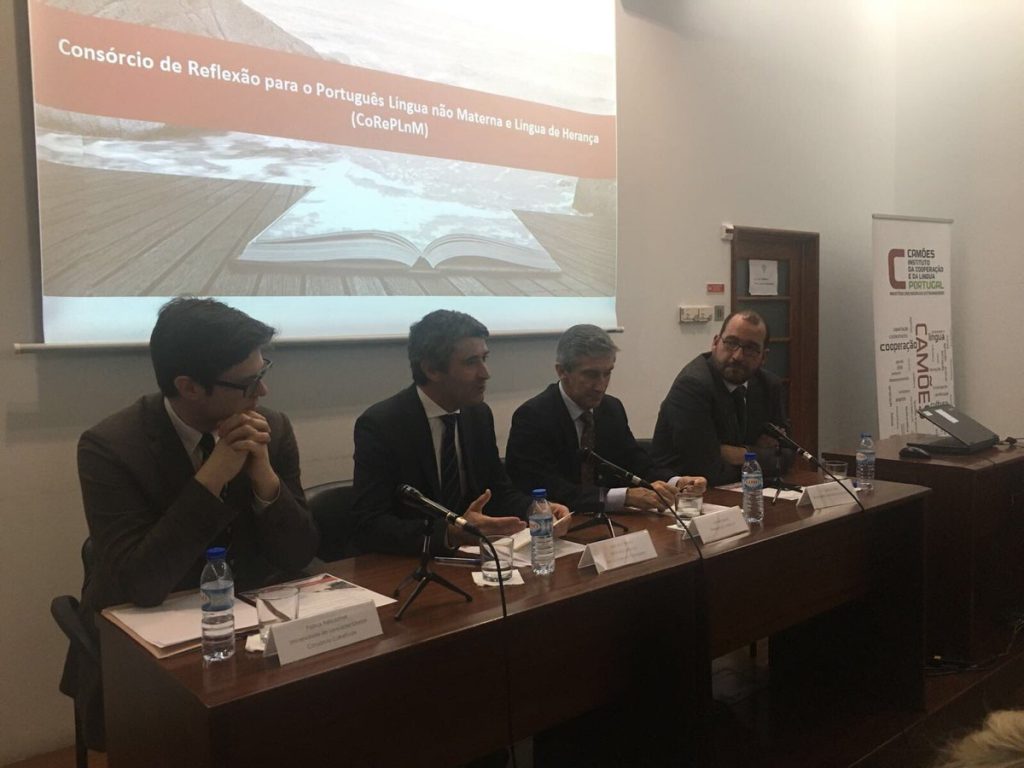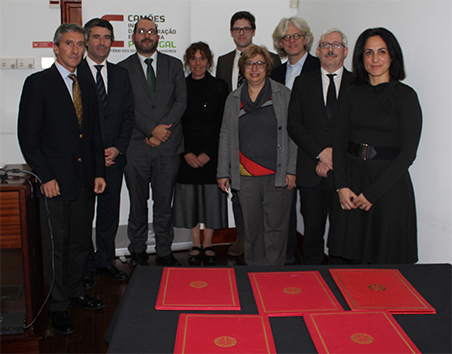Just returned from Lisbon from the official launch of our new Heritage Language Consortium. The Heritage Language Consortium is a strategic partnership between Lancaster University, the University of Lisbon, the University of Minho, NOVA University Lisbon, the University of Porto, Tübingen University, and Camões: Instituto da Cooperação e da Língua, Ministry of Foreign Affairs.
The Consortium is a direct result of a symposium I organized in April 2017, which featured the Portuguese Secretary of State for Education as our distinguished keynote speaker. The event brought together policy makers, academics, teachers, and parents to discuss challenges and opportunities in heritage language education (event website).
The objective of the Heritage Language Consortium is to promote research on language learning in a variety of settings (from naturalistic development to classroom-based instruction) and across different age groups (children, adolescents and adults). The focus of our research will be on the acquisition of Portuguese in multilingual settings, though the insights gained from Consortium projects will be applicable to other languages.
Our research will help us understand how children and adults learn new languages and identify those factors that make some of us particularly good language learners. We can then use these insights to improve language education. Very proud to serve as Director of this important initiative!
Consortium projects involve leading researchers from a range of disciplines (theoretical linguistics, education, computational linguistics, cognitive psychology, language pedagogy, corpus linguistics, second language research) and a range of methodological approaches. In addition, the Consortium also participates in impact and outreach activities to engage with parents, teachers and policy makers.
For more information on the Heritage Language Consortium, please visit our website.

